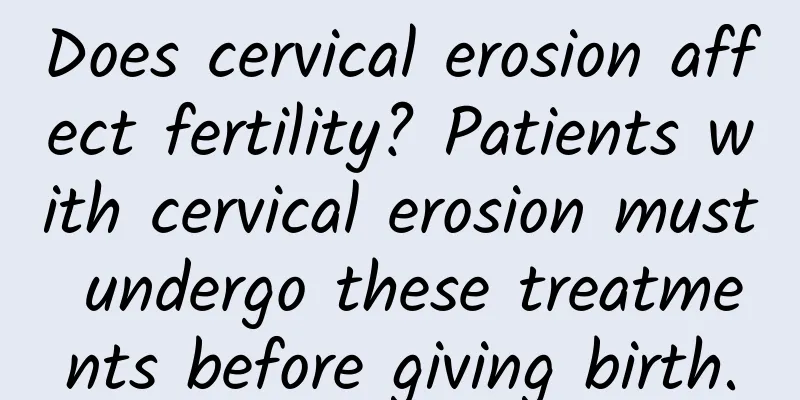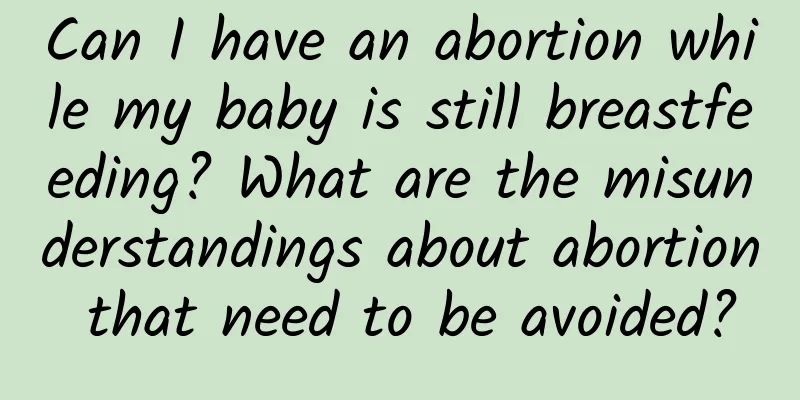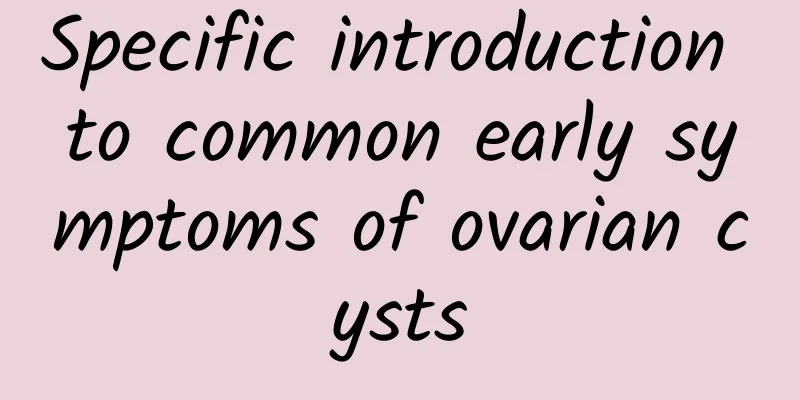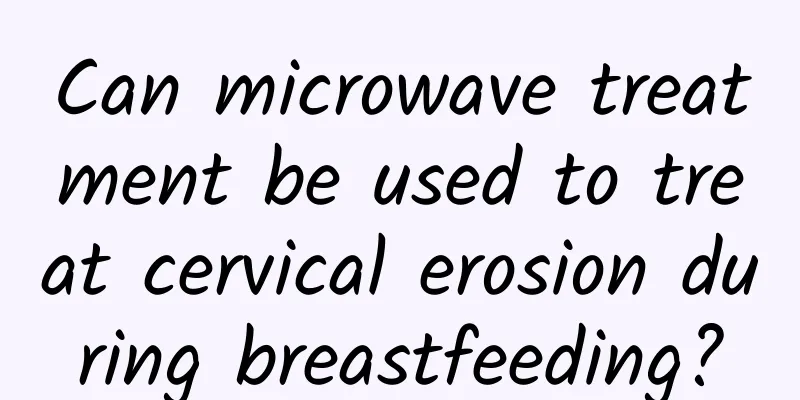What should I do if I have dysmenorrhea and irregular menstruation? Is dysmenorrhea and irregular menstruation caused by endocrine disorders?

|
Patients with dysmenorrhea often show many complications in clinical practice. So what should we do about dysmenorrhea and irregular menstruation? Dysmenorrhea is a clinical manifestation of body secretion disorders or certain organic diseases. There are generally two situations. One is primary dysmenorrhea, which refers to the reproductive organs without pathology and is caused by functional disorders. It is more common in young women; the other is secondary dysmenorrhea, which is caused by organ lesions of the reproductive organs, such as pelvic inflammatory disease, endometriosis or uterine fibroids, and is more common in women over 30 years old. Once the disease is cured, dysmenorrhea can be eliminated. Long-term irregular menstruation and severe dysmenorrhea, first find out the cause! Irregular menstruation may be a period of time for women from menstruation to menopause. Some women even have such a situation throughout their lives. In addition to menstruation and more recent situations, the most painful is dysmenorrhea. Women have long-term irregular menstruation and severe dysmenorrhea. To solve this pain, we must first find out the cause of irregular menstruation and treat it in a targeted manner. The causes of irregular menstruation include neuroendocrine dysfunction, mainly hypothalamus-pituitary-ovarian axis functional instability or defects, organic lesions, including local genital inflammation. According to the different symptoms of dysmenorrhea and irregular menstruation, warming, blood stasis and nourishing foods are given respectively. People with cold and stagnant qi, cold body and fear of cold should eat foods that warm the meridians and dispel cold, such as chestnuts, lychees, brown sugar, ginger, fennel, pepper, and pepper. People with qi stagnation and blood stasis should eat foods that ventilate and dissolve blood stasis, such as celery, shepherd's purse, spinach, onion, coriander, cabbage, ginger, carrots, oranges, orange peels, bergamot, bananas, and apples. |
<<: How to judge irregular menstruation? What are the 5 criteria for judging irregular menstruation?
Recommend
What will happen if uterine fibroids are not treated properly? What are the complications of uterine fibroids?
The harm of uterine fibroids to women is mainly t...
First case! New Taipei City found ractopamine in hamburger meat
The New Taipei City Health Bureau conducted a ran...
Are uterine fibroids common? What are the symptoms of uterine fibroids?
What is uterine fibroid? First, let's underst...
What are the diseases caused by uterine fibroids? What are the symptoms of uterine fibroids?
What are the diseases caused by uterine fibroids?...
What are the key points to pay attention to after abortion?
Abortion surgery is very harmful to female compat...
Two major cancer symptoms of cervicitis in women: some ways to stay away from cervicitis
Cervicitis is a common cervical disease caused by...
Do you know about ovarian and cervical precancerous lesions?
Patients with cervical precancerous lesions often...
What should I do if my period comes 3 to 5 days early every month?
What should I do if my period comes 3 to 5 days e...
What should you pay attention to in your diet when you have intrauterine fluid?
If there is uterine effusion, this situation shou...
Rest is the key to care for endometrial tuberculosis
Endometrial tuberculosis is a common disease that...
Why did I get pelvic inflammatory disease before giving birth?
Regarding the causes of pelvic inflammatory disea...
What you need to know about nursing care after having an ectopic pregnancy
Pregnant women are very likely to suffer from ect...
How to control dysmenorrhea in daily life
During menstruation, dysmenorrhea is one of the d...
What are the symptoms of vulvar leukoplakia?
Many patients are too embarrassed to look at thei...
Treatment of intrauterine adhesions and cervical adhesions
Intrauterine adhesions and cervical adhesions can...









